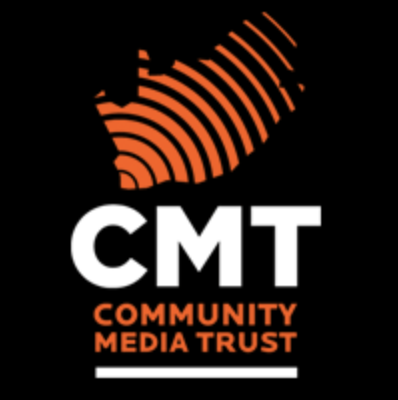Quacks and Denialists
The problem of lack of access to treatment in South Africa was not just about the price of drugs; it was also about the lack of political leadership, starting from the top with ex-President Thabo Mbeki and the Ministry of Health under the late Minister of Health Dr Manto Tshabalala-Msimang, all the way down to provinces like the Eastern Cape, Mpumalanga and KwaZulu-Natal.
This meant that no treatment plan was implemented until 2004. And there was no ambitious strategic plan until 2007, when the National Strategic Plan (NSP) was adopted by Cabinet. There was almost no access to treatment and there were many unnecessary and avoidable deaths.
Free play for frauds and charlatans
South Africa became a playground for all sorts of charlatans who took advantage of the environment created by government denialism and unsurprisingly won the protection of government. They included people like Matthias Rath and Zeblon Gwala. Court cases and intense community mobilisation became the order of the day in dealing with a non-responsive and arrogant government.
Over the decade following Thabo Mbeki becoming president of South Africa in June 1999, the government’s AIDS denial and mismanagement of the health system would cost many thousands of lives. As early as October 1999, Mbeki expressed scepticism about the use of the antiretroviral drug AZT. He responded to calls to make it available in South Africa by saying that there exists ‘a large volume of scientific literature alleging that, among other things, the toxicity of this drug is such that it is in fact a danger to health’.
Soon after, Tshabalala-Msimang announced that she had asked the Medicines Control Council to review the safety of AZT before it could be used to prevent mother-to-child transmission. The Council then endorsed the use of AZT, but she rejected their recommendations.
In early 2000, Mbeki formed a Presidential Aids Advisory Panel. In the two official meetings of the Panel, Mbeki invited roughly as many AIDS denialists as he did reputable HIV scientists. The views of the denialists had no credibility in the scientific community. Later that year, 5 000 scientists from all over the world signed the Durban Declaration, which stated that the evidence that AIDS is caused by HIV is ’clear-cut, exhaustive and unambiguous, meeting the highest standards of science’.
Meanwhile, Tshabalala-Msimang continued citing price, safety, side effects and resistance as barriers to rolling out antiretroviral treatment. Nevertheless, through litigation and pressure, government was forced to start providing antiretroviral treatment. Tshabalala-Msimang was not happy with this and continued to retard the provision of treatment and the introduction of improved treatments wherever possible. She kept questioning the safety of antiretrovirals and supported quacks like Matthias Rath, Tine van der Maas and Zeblon Gwala.
Peddling multivitamins as a cure for HIV
Despite government’s reluctance, by 2004 the treatment rollout was gathering momentum and TAC branches were mobilising communities to get tested and access treatment. It was then that Matthias Rath and his foundation appeared on the scene peddling multivitamins as a cure for HIV, cancer and other diseases. In early 2005, Rath set up clinics in Khayelitsha and other Cape Town townships.
Tshabalala-Msimang was a strong supporter of Rath, even though courts in other countries had ruled against him. SANCO, the ANC-aligned civic organisation, also backed Rath. They distributed his pamphlets, worked in his ‘clinics’, recruited patients and endorsed his advertisements.
Advertisements like the following appeared in The Sowetan, Daily Sun, Mail & Guardian, and other papers: ‘The Dr Rath Health Foundation Africa has the support of our Minister of Health and our Government… Unlike toxic antiretroviral drugs, these vitamins are safe. Trust our Government and those who support it… Don’t fall for dirty tricks: TAC targets poor communities as markets for the drug industry… and pays crowds to demonstrate.’
NAPWA also distributed Rath’s products and sided with him when TAC took him to court. The Traditional Healers Organisation staged demonstrations at TAC offices in support of Rath. TAC and the Legal Resources Centre led a legal battle to stop Rath and his propaganda, with strong support from Médecins Sans Frontières, the South African Medical Association, the Southern African HIV Clinicians Society and other health workers.
After years of legal wrangling, the court finally ruled in June 2008 that Rath’s advertising was false, misleading and unlawful. The court also declared that he was unlawfully distributing medicines and conducting unauthorised clinical trials. The minister of health was held responsible for not enforcing the Medicines Act.
This was a major victory for TAC and its allies, but serious problems remain with the regulation of medicines in South Africa and many quacks still sell their snake oils without any concern for the law.
The end of state-supported AIDS denialism
A major blow for Health Minister Tshabalala-Msimang came at the International AIDS Conference in Toronto in 2006. The South African government’s stand featured garlic, lemons and African potatoes – the minister’s idea of treatment for AIDS. Infuriated TAC members at the Conference occupied the stand in protest. Then Mark Heywood spoke at a plenary session in front of thousands of delegates and called for the minister’s removal from office. This was very bad publicity for government and soon after they compromised and agreed to negotiate the National Strategic Plan.
Tshabalala-Msimang fell ill and during her illness much of the Plan was negotiated. In this period, Nozizwe Madlala-Routledge gained increasing prominence as the deputy minister of health and played an important part in the development of the Plan. She was quoted in the media as speaking accurately about HIV and criticising the handling of HIV in South Africa. She paid for her straight talking when she was dismissed by Mbeki in August 2007. He cited a flimsy justification relating to Madlala-Routledge’s travel arrangements. The move backfired in the media and Mbeki was left looking stubborn and dictatorial.
Mbeki lost control of the ANC in 2007.
In September 2008, Kgalema Motlanthe became president. Motlanthe moved Tshabalala-Msimang from her position and put her into an unimportant ministerial post. She was replaced by Barbara Hogan, who immediately made the removal of AIDS denialism a priority. When Jacob Zuma became president in May 2009, Hogan was replaced by Aaron Motsoaledi, a doctor with scientifically sound views about HIV. The era of state-sponsored AIDS denialism was finally over.
SOURCE:
- Treatment Action Campaign. (2010) Fighting for Our Lives: The history of the Treatment Action Campaign 1998–2010, Cape Town: Treatment Action Campaign.
This section of the archive is focused on government denialism and the quacks who profited from it. It includes footage covering the following topics:
- Thabo Mbeki’s stance against Western medicine
- Mbeki’s argument that AIDS was caused by poverty, bad nourishment and general ill-health
- Manto Tshabalala-Msimang advocating treating AIDS with lemon, beetroot and garlic
- Tine van der Maas and her natural treatment of AIDS and related diseases with a lemon mixture, garlic and beetroot
- Matthias Rath’s quackery – misleading people with deadly consequences
The marketing of Ubejhane (Zulu for ‘black rhinoceros’) as a treatment for HIV/AIDS by former truck driver Zeblon Gwala, who has claimed that he got the idea for it in a dream





